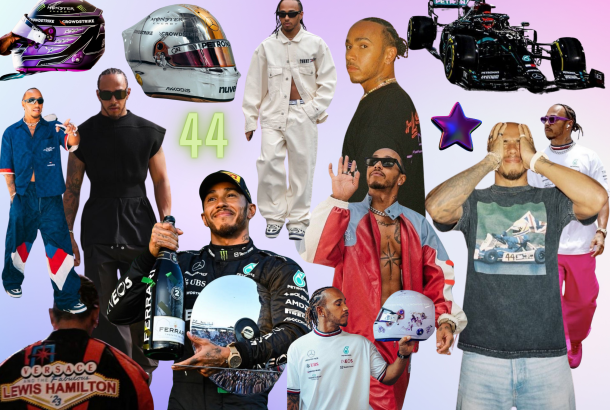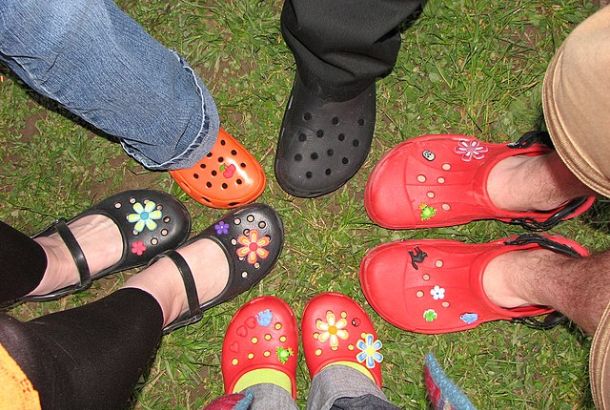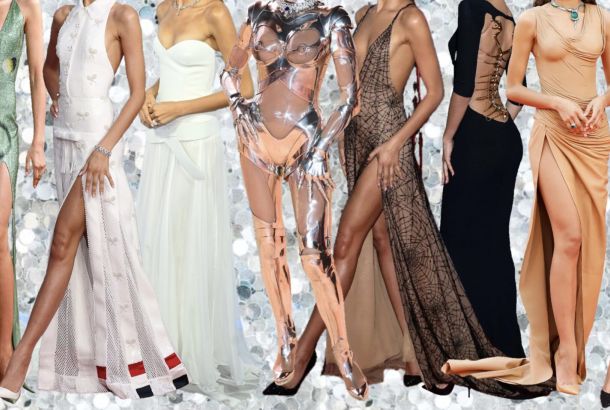A Tough Act to Follow: In conversation with War Paint founder Danny Gray
By Jay Darcy
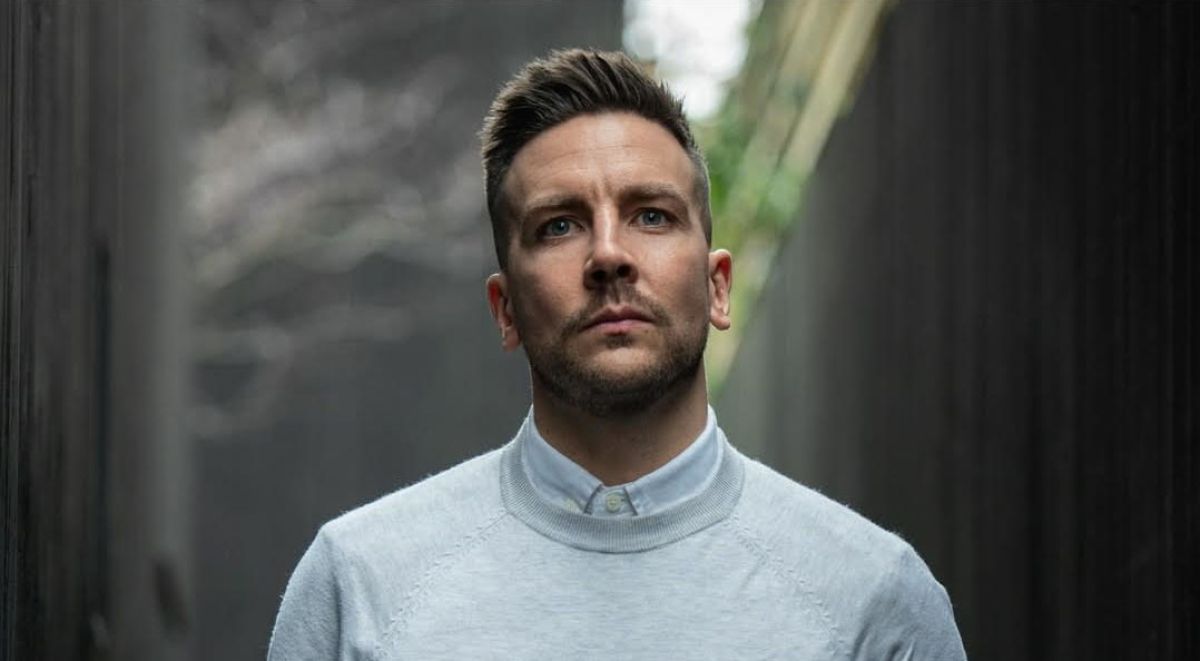
This article series – A Tough Act to Follow (get it?) – is an exploration into the performative nature of social media. Each feature will see me interviewing an Instagram influencer, social media personality, or somebody who utilises social media to advance their career, as we explore the construction of online identities. In particular, this series is interested in gender identity.
Danny Gray
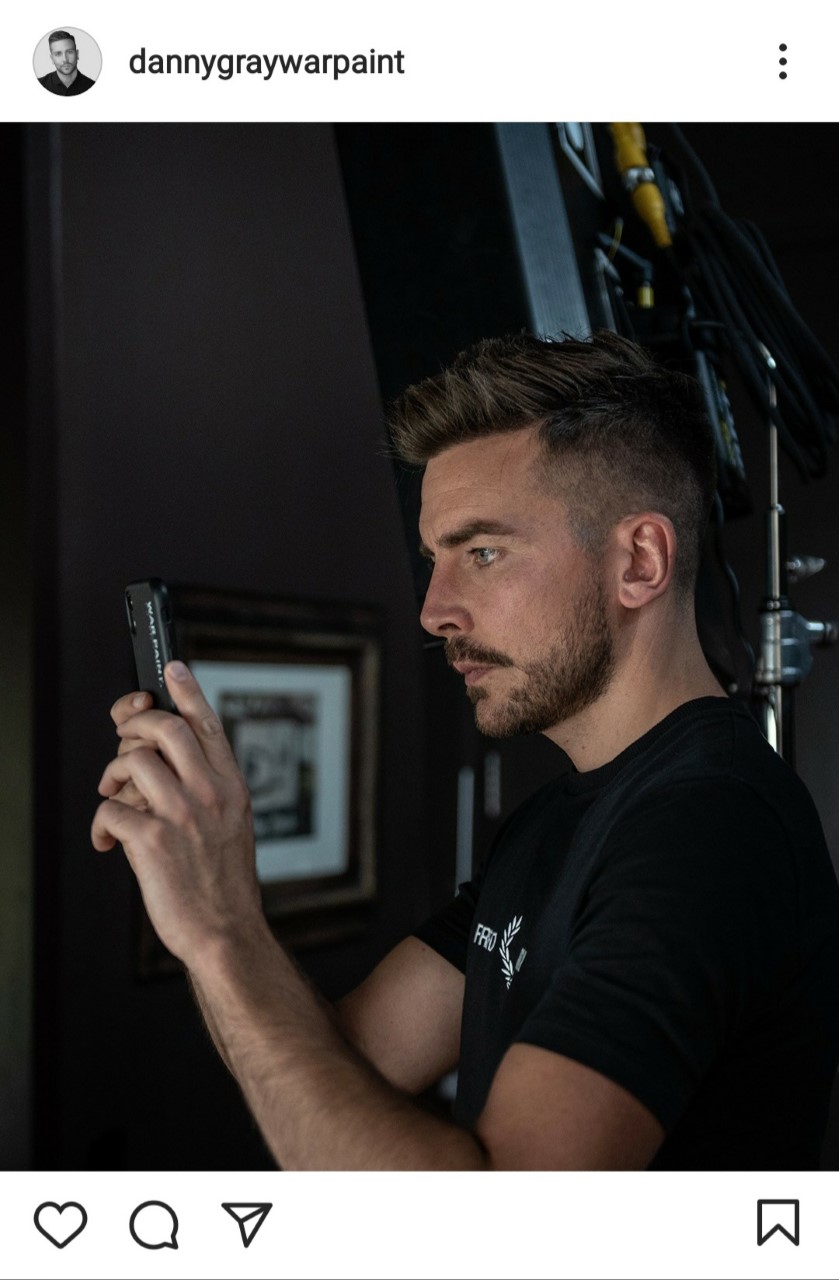
Following my last “tough act”, the Zakar Twins, is businessman and author Danny Gray. Danny is the founder of award-winning men’s make-up company War Paint.
Whilst most of my “tough acts” are influencers, this series is focused on people who use social media in positive ways. For example, I interviewed a music artist – my friend, Patrick Ralphson – in the second feature, and now I am featuring a businessman.

War Paint has a wonderful social media team. Their Instagram page is visually striking and informationally compelling. They are brilliant at marketing and promotion; earlier this year, I began seeing advertisements for the brand everywhere. It was inescapable!
I was very intrigued by the concept of a “men’s make-up brand”, so I reached out to War Paint in hopes of doing some kind of collaboration. They were kind enough to offer me an interview with their founder, so I decided to feature Danny as one of my “tough acts”, because War Paint has utilised social media in its mission to reinvent “masculinity”.
Danny’s beginnings
When Danny was 12-years-old, he was bullied for his ears, which he described as at “right angles” to his head. He recounted cruel kids singing R. Kelly’s ‘I Believe I Can Fly’ and telling him to “flap” his ears. He began obsessing over his appearance, and within a few months, he had his ears pinned back.
But this was not enough. Even something as small as a spot would be a big deal to him, so his sister gave him a bit of concealer. “Honestly, I couldn’t believe what a product could do; how powerful a bit of make-up was,” he told me.
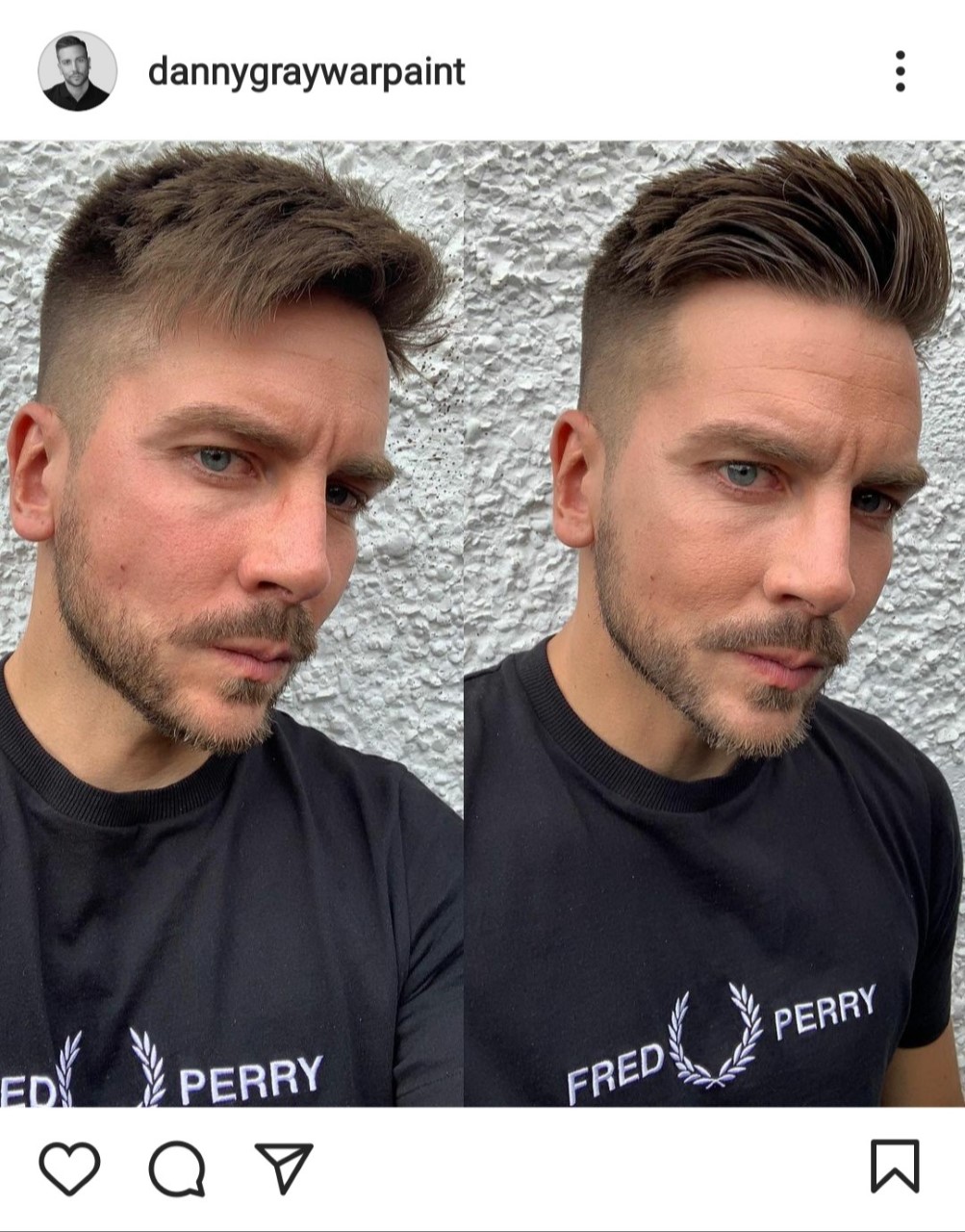
Danny has now been wearing make-up almost every day for the past twenty years.
Although make-up instantly gave him confidence, he sometimes lacked confidence buying it because it was (and indeed, still is) considered a taboo for men, “which is ridiculous,” he added. But he acknowledged that lots of men want certain things in a brand and to “be talked to in a certain way”.
For years, he tried to find a brand that suited him, before eventually deciding to “do it myself if nobody else is doing it”.
He soon began creating his own make-up and formulating it all himself. The opening order was £100,000, which required him to not only get investments, but also remortgage his house and sell his cars and watches. He “risked it all”, but it sure has paid off!
Danny’s company
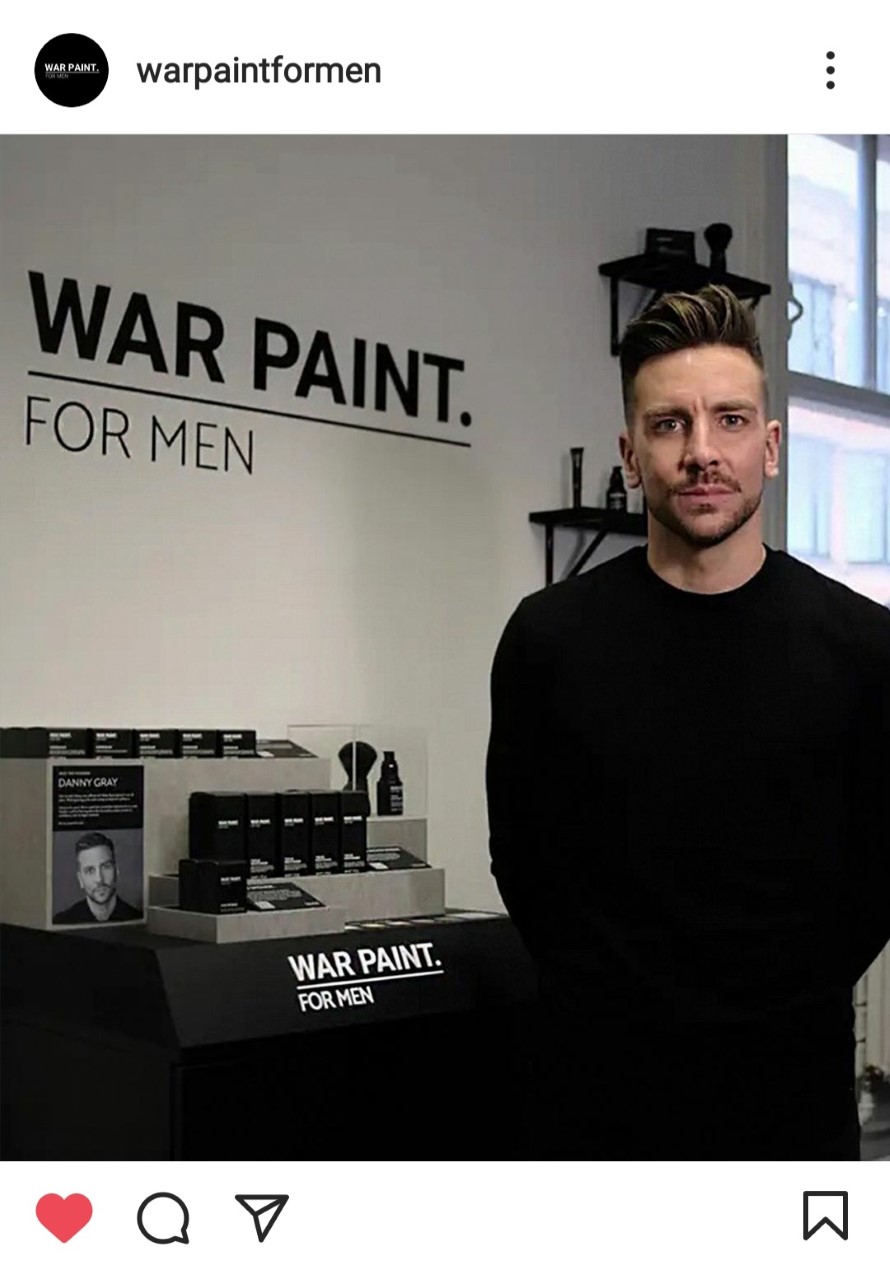
War Paint’s name comes from a television programme that Danny watched about eight years ago, in which a woman talked about putting her “war paint” on. Danny instantly thought, “that’s a name!”
He sees make-up as “an armour” and putting on make-up as preparing for “a daily battle”. Make-up is there to give a confidence boost: “I feel better, I’m ready, I’m gonna be the best me,” he said.
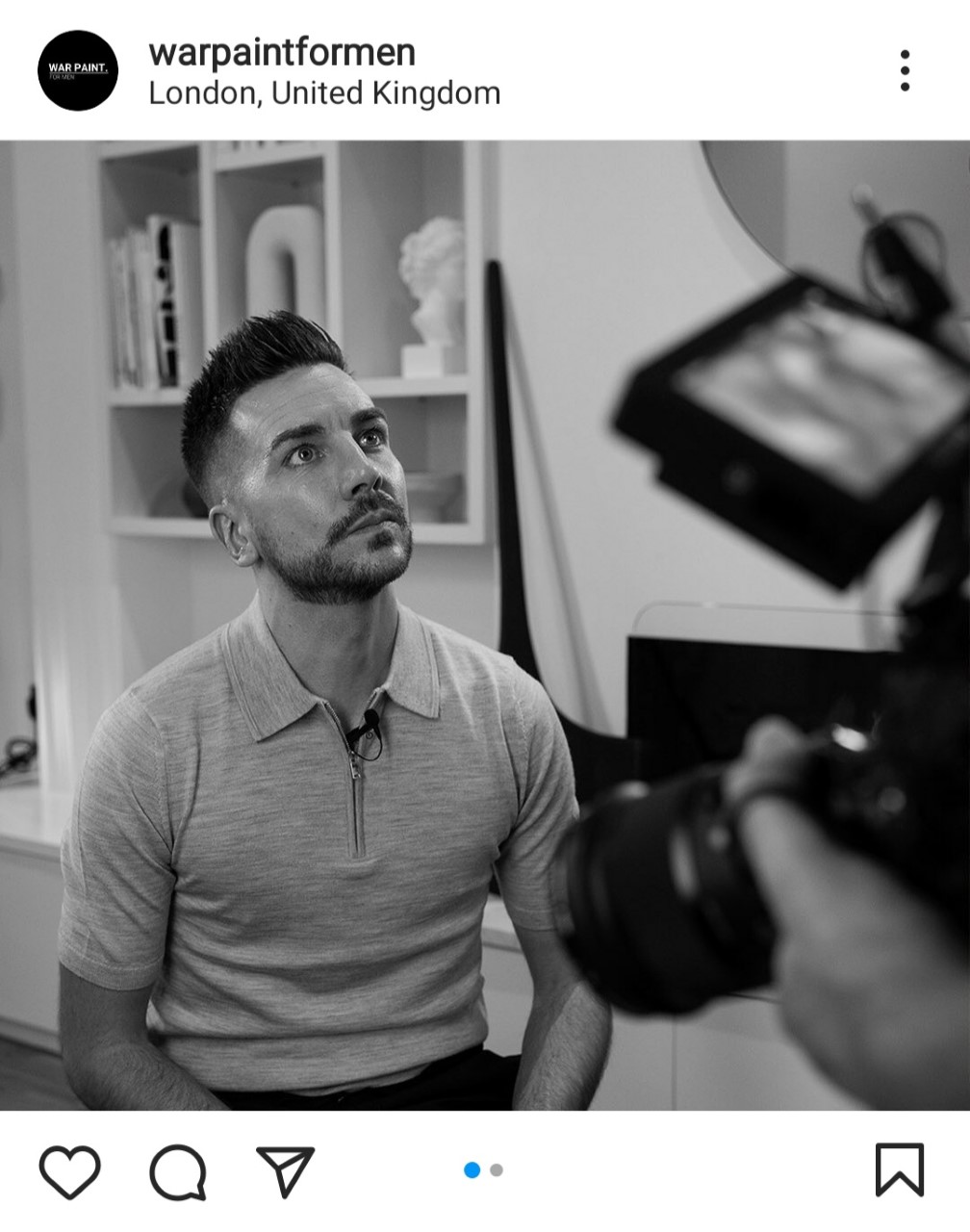
When Danny started War Paint – which was just him “and a nineteen-year-old girl in a flat” – in November 2018, he was expecting to have no more than £2000 of sales in the first month, but they did £11,000. In the second month, they did £28,000, and in the third month, they did £36,000.
They then got “a little office in Watford,” before an advertisement on Twitter in May 2019 saw the brand go viral.
This advertisement garnered 8 million Twitter views in 24 hours, and had the brand trending number one in the world. The response, however, was very negative. Danny called it “toxic masculinity.”
Whilst this response was disheartening, it was great promo for the brand. Danny was on everything from ABC News to Good Morning America, with the office receiving constant calls from different media outlets.
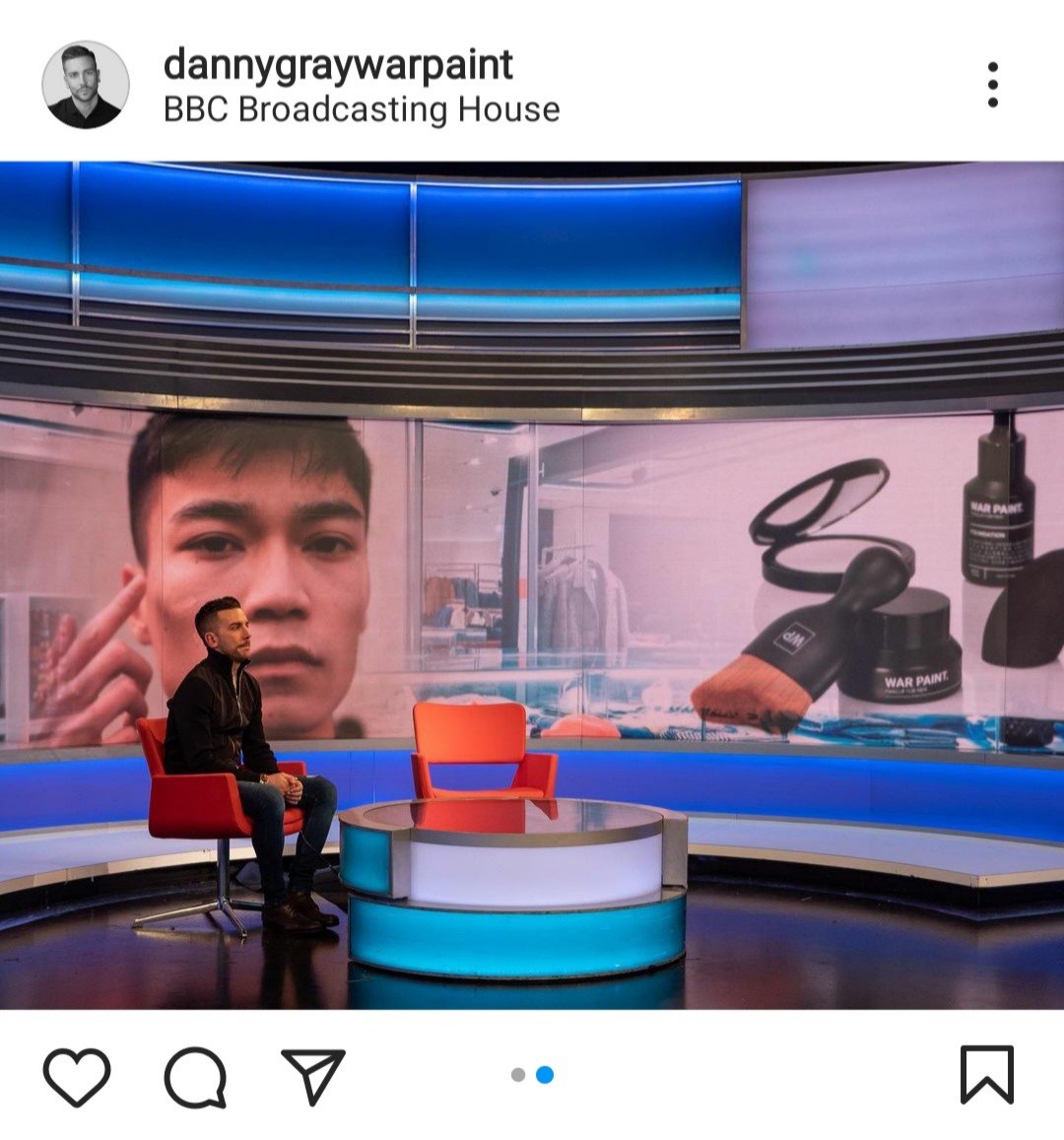
“At the time, I thought the brand was over but… what that did was start the conversation, for the first time ever in mainstream [media], about men wearing make-up, on a mass-media level”.
The brand received record sales and, off the back of this, Danny went on Dragon’s Den. Since then, War Paint has been featured in around 500 press articles, all over the globe, in just two years. He estimates that around 90% of press coverage is now positive. Indeed, this article is!
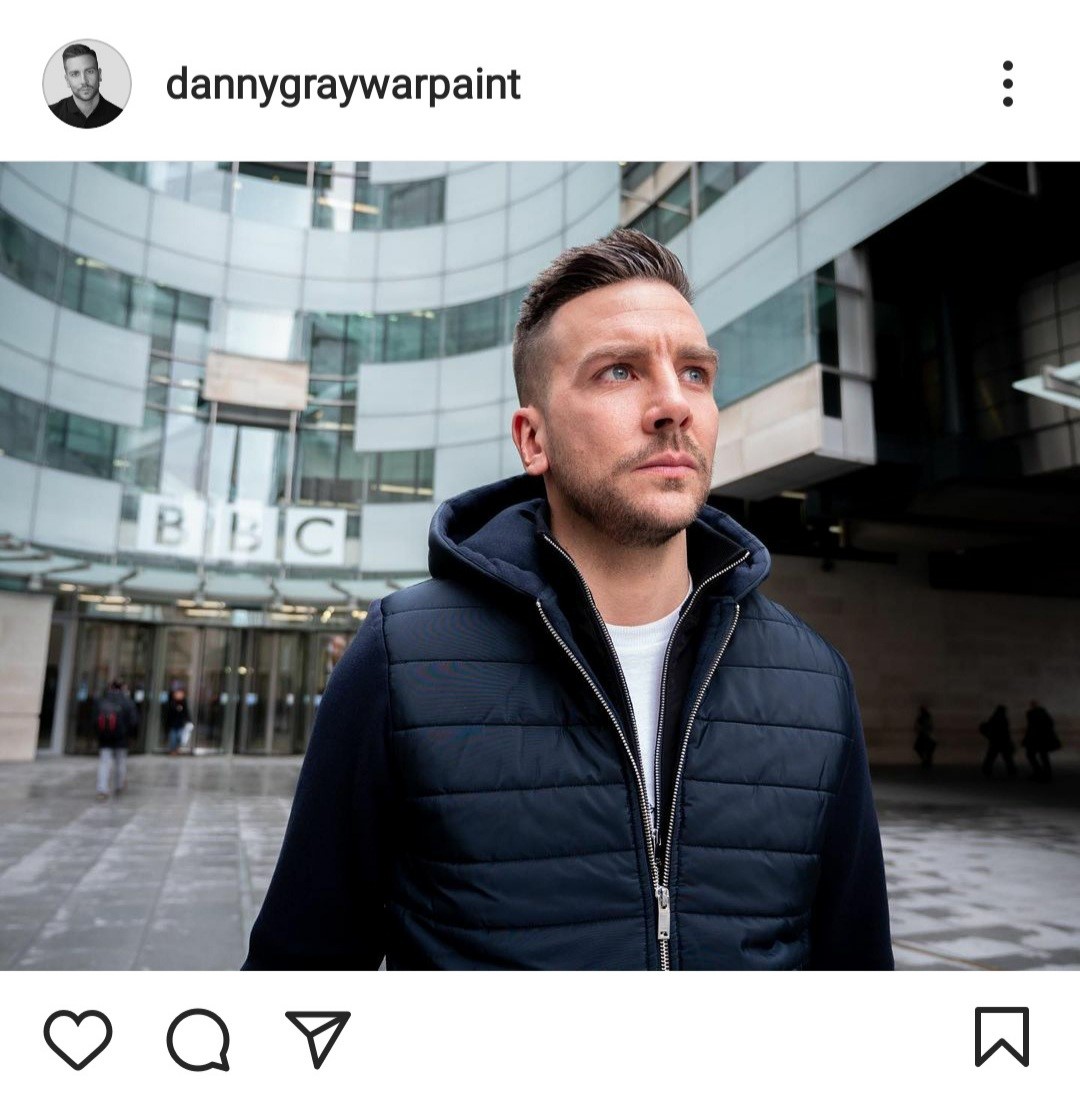
War Paint had the first ever men’s make-up counter in a department store – in the world – which lead to the brand going viral once again.
John Lewis did not think that War Paint would do too well, but they were willing to give them a chance. It is a good job they did, because, in terms of press and sales, it was the best launch that John Lewis has done in thirty years. War Paint sold seven times more than the skincare brand next to them!

Danny knew that there would be a market for men’s make-up because men have been wearing make-up for years. Until relatively recently, make-up was worn by men, and some men around the globe do still wear it. My maternal grandfather belonged to an Iranian ethnic group where the men wear eyeliner – or rather, an eye cosmetic, which was first worn by the Ancient Egyptians – which seems ironic given how conservative, heteronormative, and patriarchal this group is. But this just goes to show that “gender” is not fixed throughout all space and time.
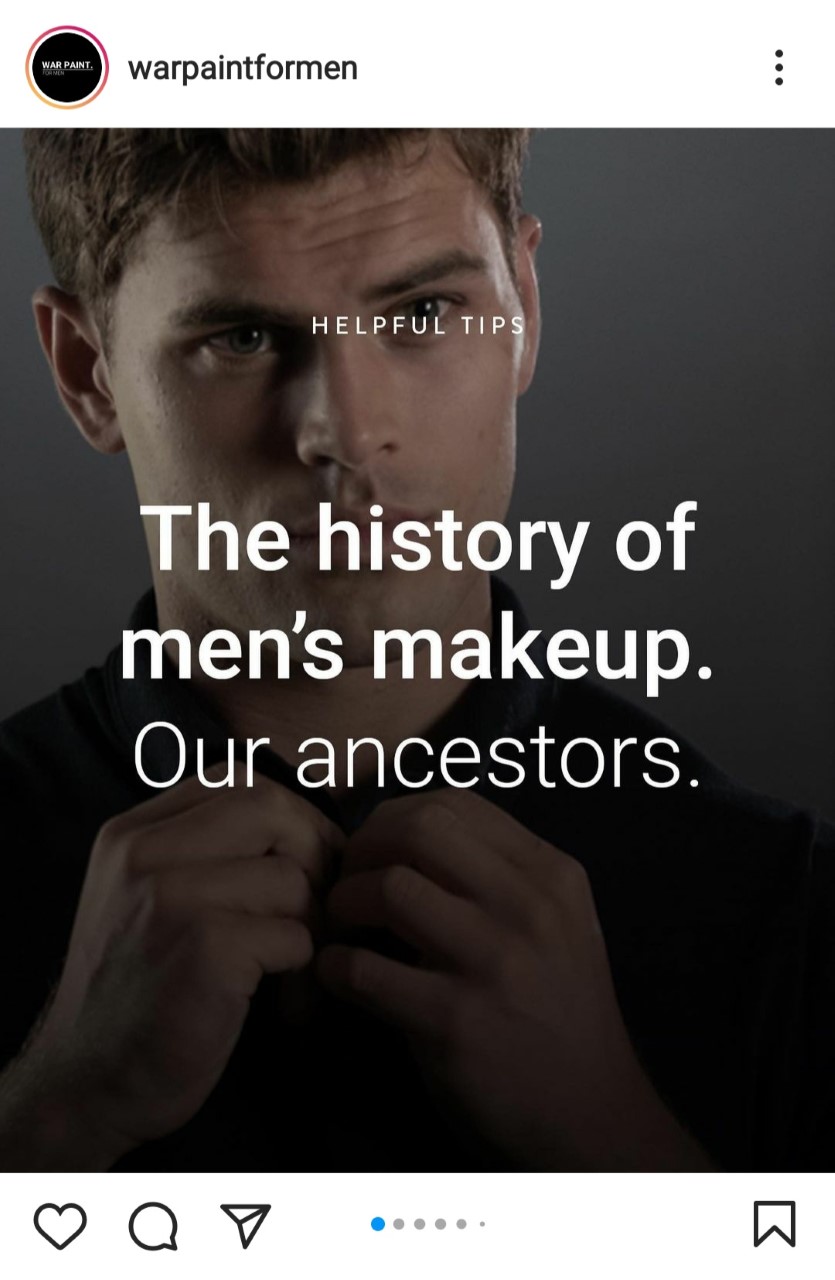
Similarly, high heels were invented for men, so women wore them to look more masculine, so men stopped wearing them to avoid looking feminine!
Make-up has gone on a similar journey, where it has become a “female” product, and men are often embarrassed about wearing it. War Paint, then, wants to “normalise” men wearing-make up, in the way that men’s grooming and skincare have become ordinary – if not even expected.
Danny’s book
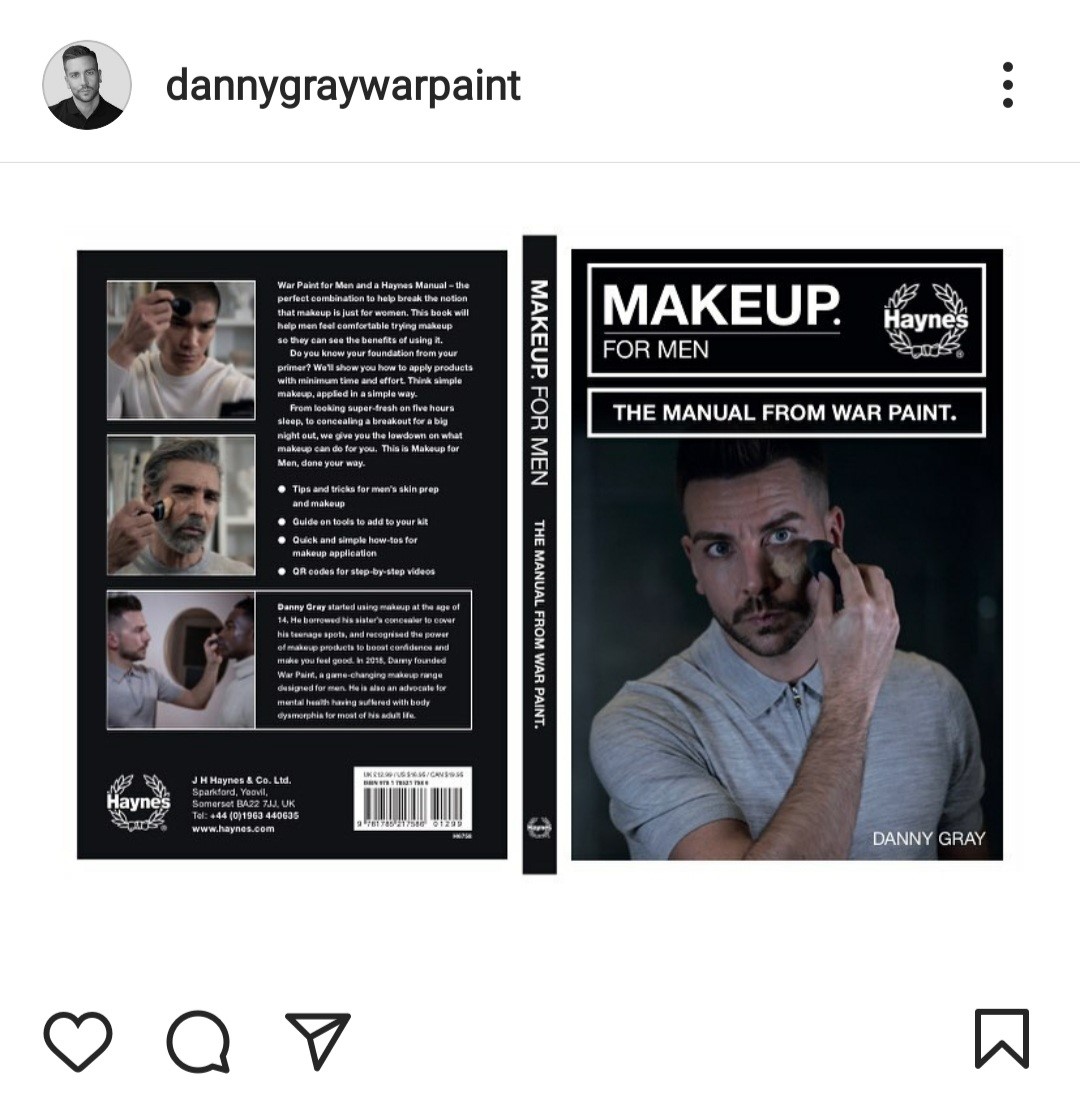
About a year ago, Haynes Manuals reached out to Danny about writing the world’s first ever men’s make-up manual, which was published earlier this month. The book is called ‘Makeup for men: The manual from War Paint’. It covers a great deal of topics, including the history of men’s make-up, different products, and Danny’s story. Haynes traditionally did car manuals, but over the last 10-15 years, they have been doing side projects on niche topics.
Danny wanted to do this because “if there’s a book written about it, if… John Lewis have got a section for men’s make-up in a department store, then the mindset of guys is like, ‘oh, okay, well, this is a thing now’, rather than people talking about it and it not being in the public eye”.
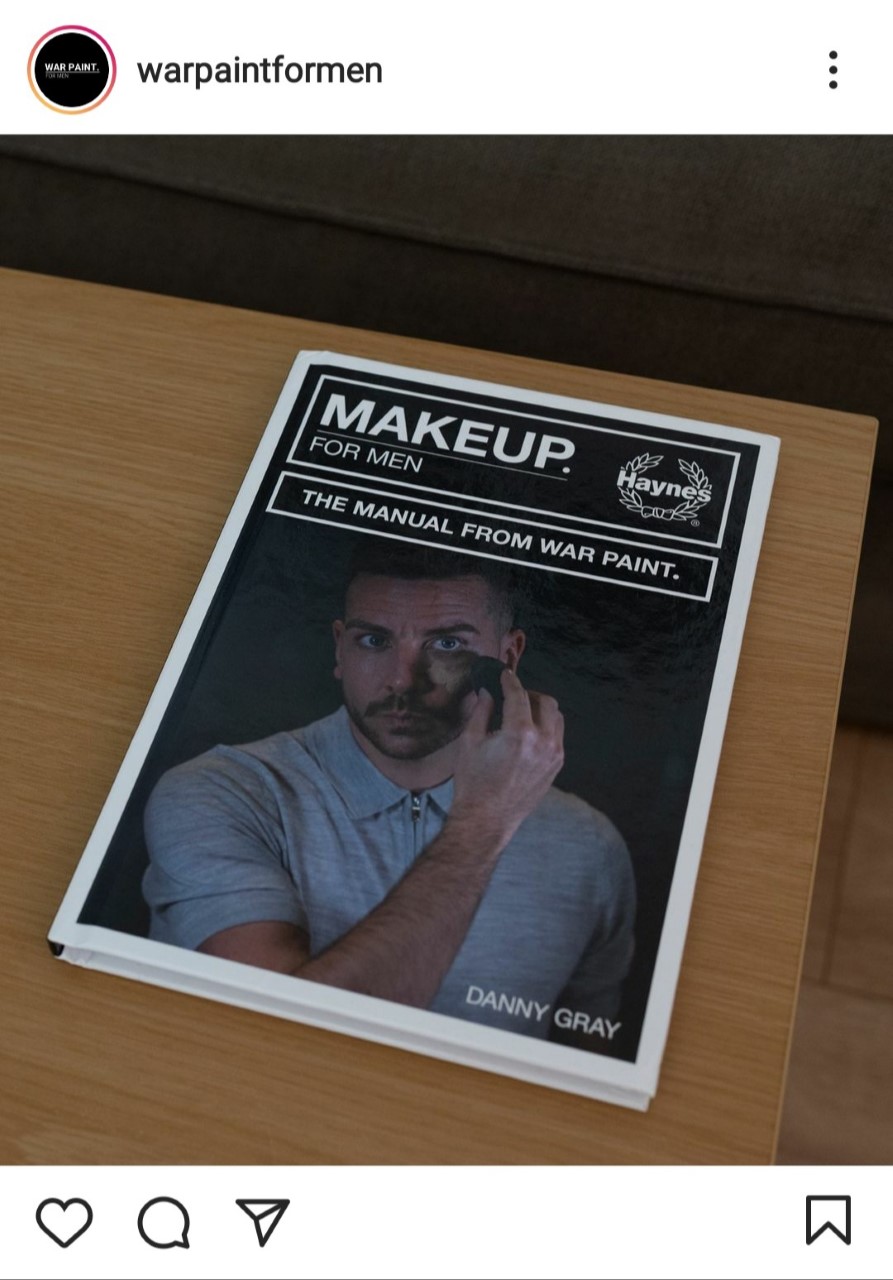
Haynes is the perfect company for Danny and War Paint to publish their book with because it is traditionally seen as a “man’s brand”, so this book is a way of reaching more men who are likely not as open to wearing make-up.
Danny’s branding
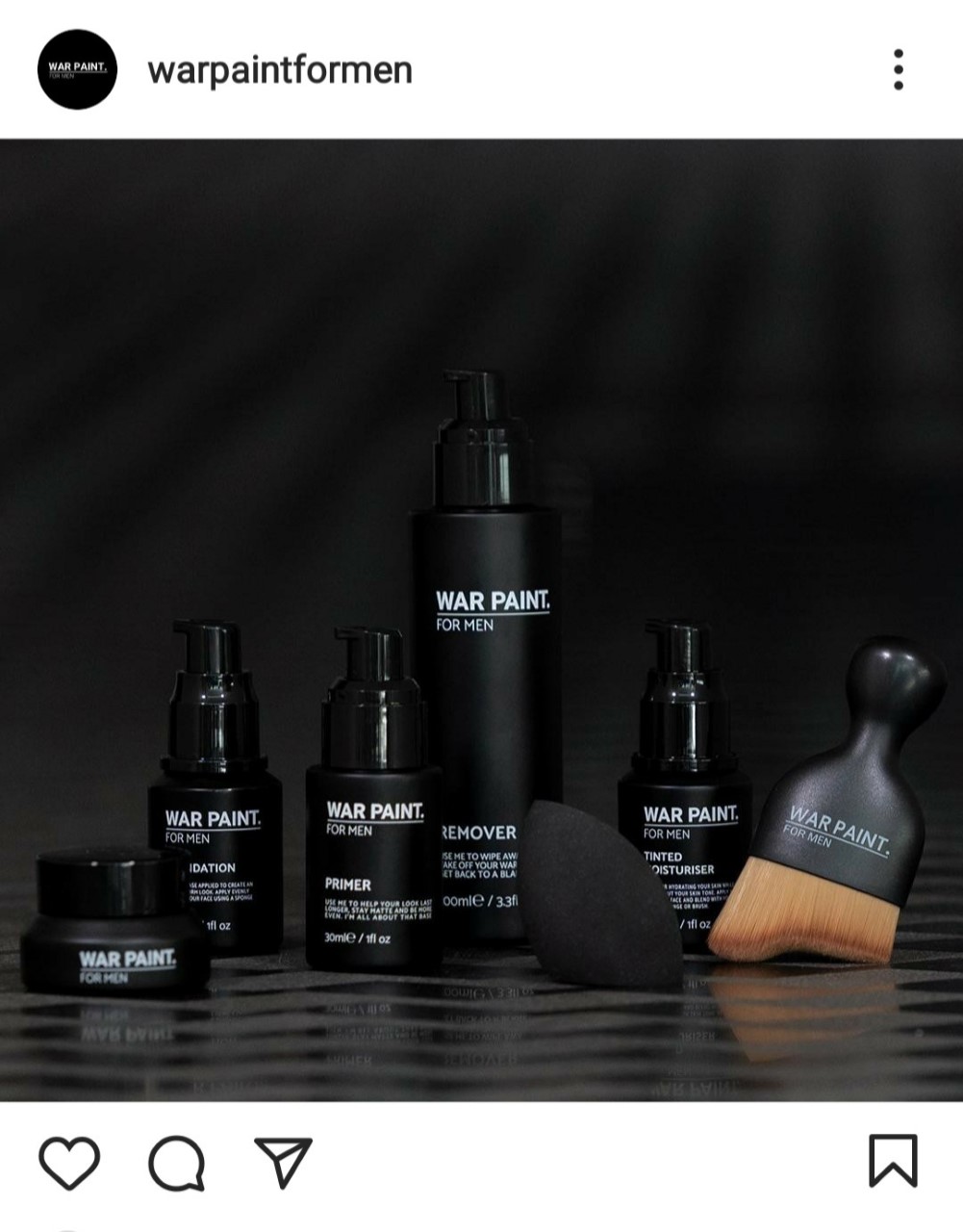
War Paint’s marketing is clearly geared towards men, from the packaging to the language. Most men who wear make-up want to go for the “no make-up” make-up look; they just want to use it to cover up bad skin. Whilst mainstream (“female”) make-up appears quite “complicated”, with things like contouring and T-zones, War Paint wants to show how simple make-up can be. Danny said that he spends no more than five minutes doing his make-up.
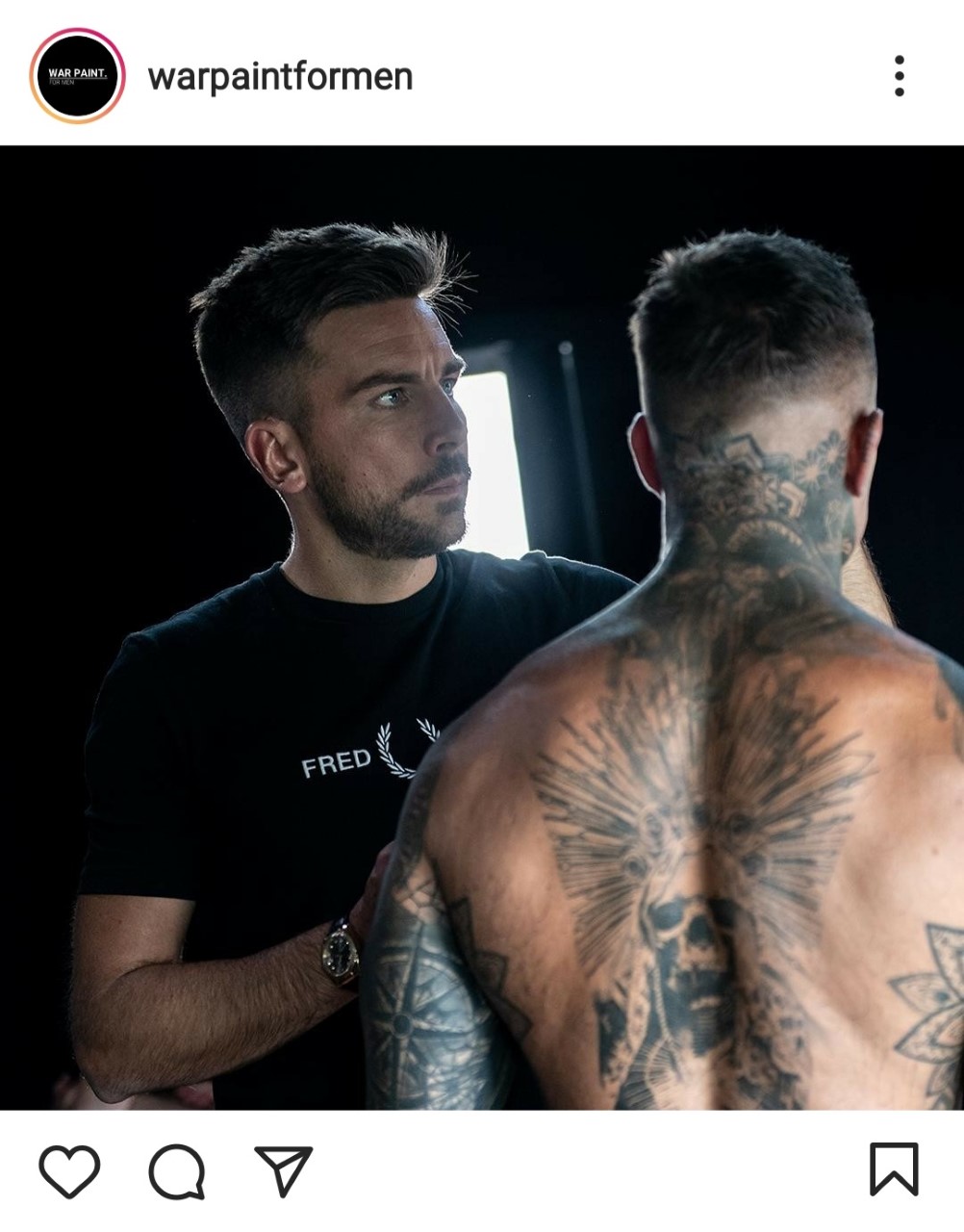
War Paint’s advertisements use men who one would not “expect” to wear make-up as part of their mission to “break the stereotype” and show that “anyone can wear make-up”. They even have a partnership with Norwich City Football Club.
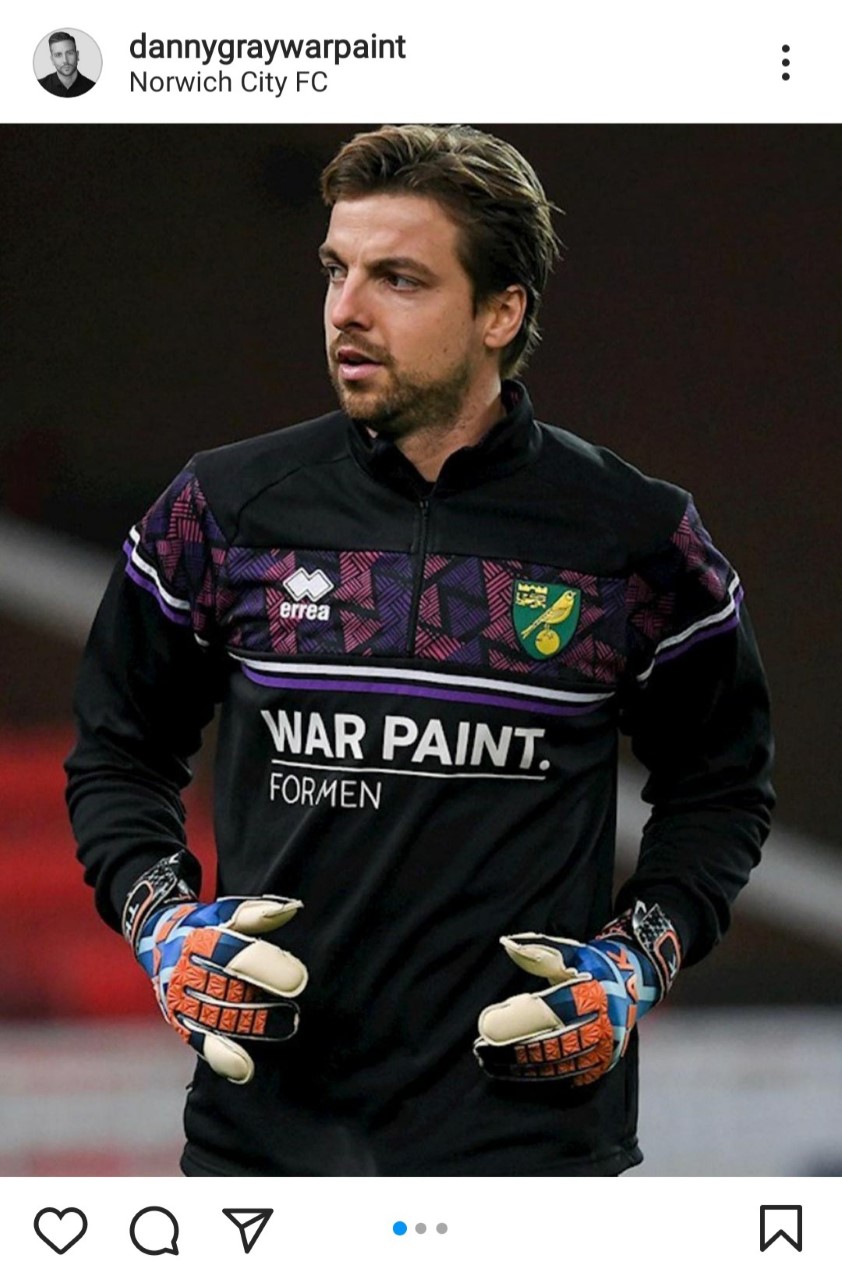
Whilst some might criticise the concept of “men’s make-up” for playing into fragile masculinity and upholding the gender binary, I think it is more complicated and nuanced than this.
Danny recognises that we are in a society where people still make a big deal out of gender, and most men will not feel comfortable buying make-up that is marketed towards women. Danny said that he, personally, is all for gender neutrality, but he recognises that many men will (sadly) feel uncomfortable buying gender neutral brands.
War Paint’s masculine branding, then, is a way of making make-up more accessible to these men. Thus, War Paint is arguably playing (and beating) “masculinity” at its own game.

So, this is the first step in normalising men wearing make-up. Is it eradicating the construct of gender? No. But it seems to be a step in the right direction – and, at the very least, a leap towards ending the stigma of men wearing make-up.
This stigma is evident when you see some of the nasty comments on War Paint’s social media advertisements.
But in a twisted and delicious irony, the fragile men who feel the need to make negative comments are actually helping the brand. Social media platforms love post interactions and so will push pages and ads that have a great deal of interaction – like War Paint. So, Danny thanks these fragile men for “saving us money”!
Danny’s customers
Whilst we spent some time talking about War Paint’s trolls, I wanted to know more about their customers. Danny told me that 30% of War Paint’s customers are women, buying for their male partners, who have confided in them about their physical insecurities. Women know what a little make-up can do!
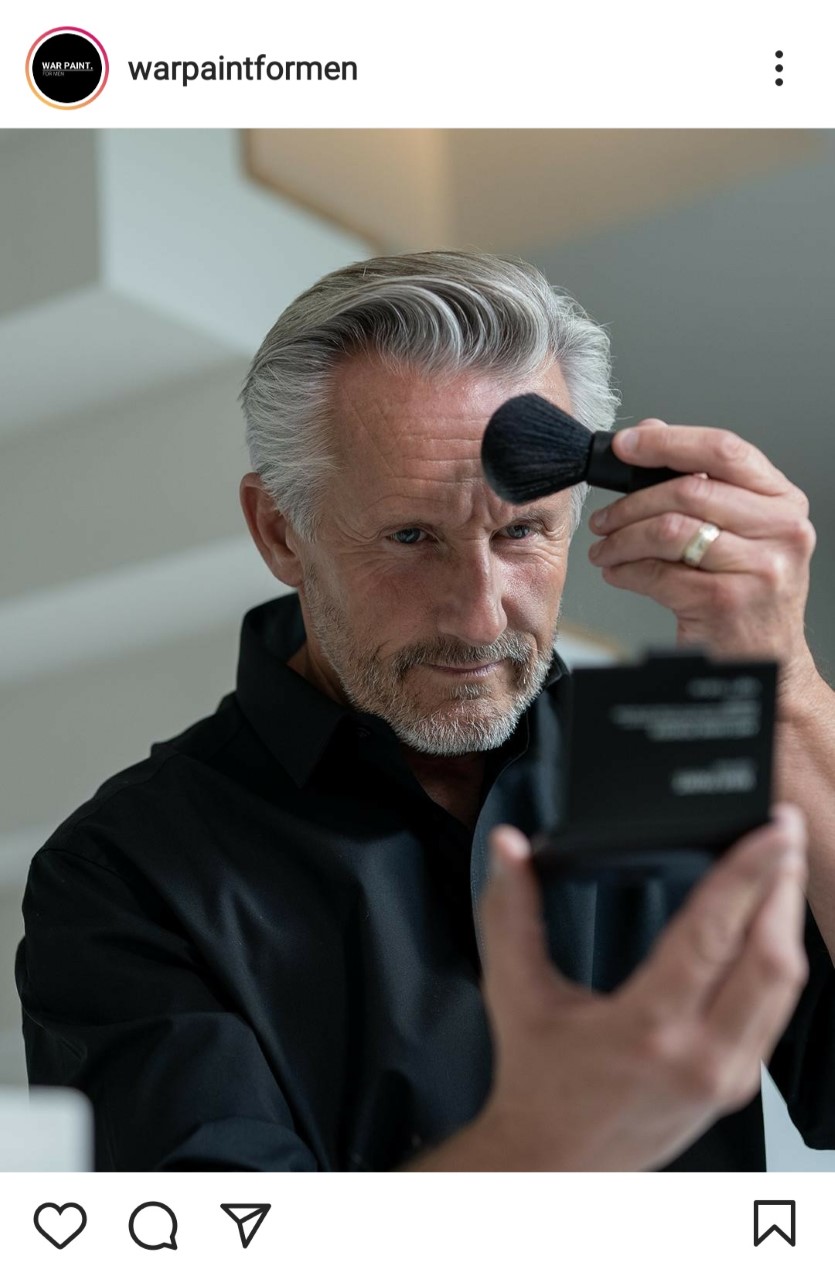
32% of War Paint’s customers are over 50 years old. This surprised me; I presumed that their customers would almost entirely be millennials. Danny said eloquently, “It doesn’t matter how old you are; confidence [and lack of confidence] doesn’t go”. Do women stop wearing make-up when they hit 50? Absolutely not.
Whilst War Paint might eventually branch out into other beauty products, such as skincare, Danny wants the company to focus on being a men’s make-up brand for now.

War Paint currently has five shades and is adding two more, but Danny is wary of adding too many because most men do not want complicated make-up and will likely feel overwhelmed seeing so many different shades.
Because most men who wear make-up do so simply to touch up and even their skin out, the shade does not have to be perfect. Danny then used a sweet shop metaphor: “send a kid to a sweet shop with a hundred sweets, they’ll be there two hours. If you send them to a sweet shop with five sweets, they’ll still pick a sweet”.
Danny’s mental health
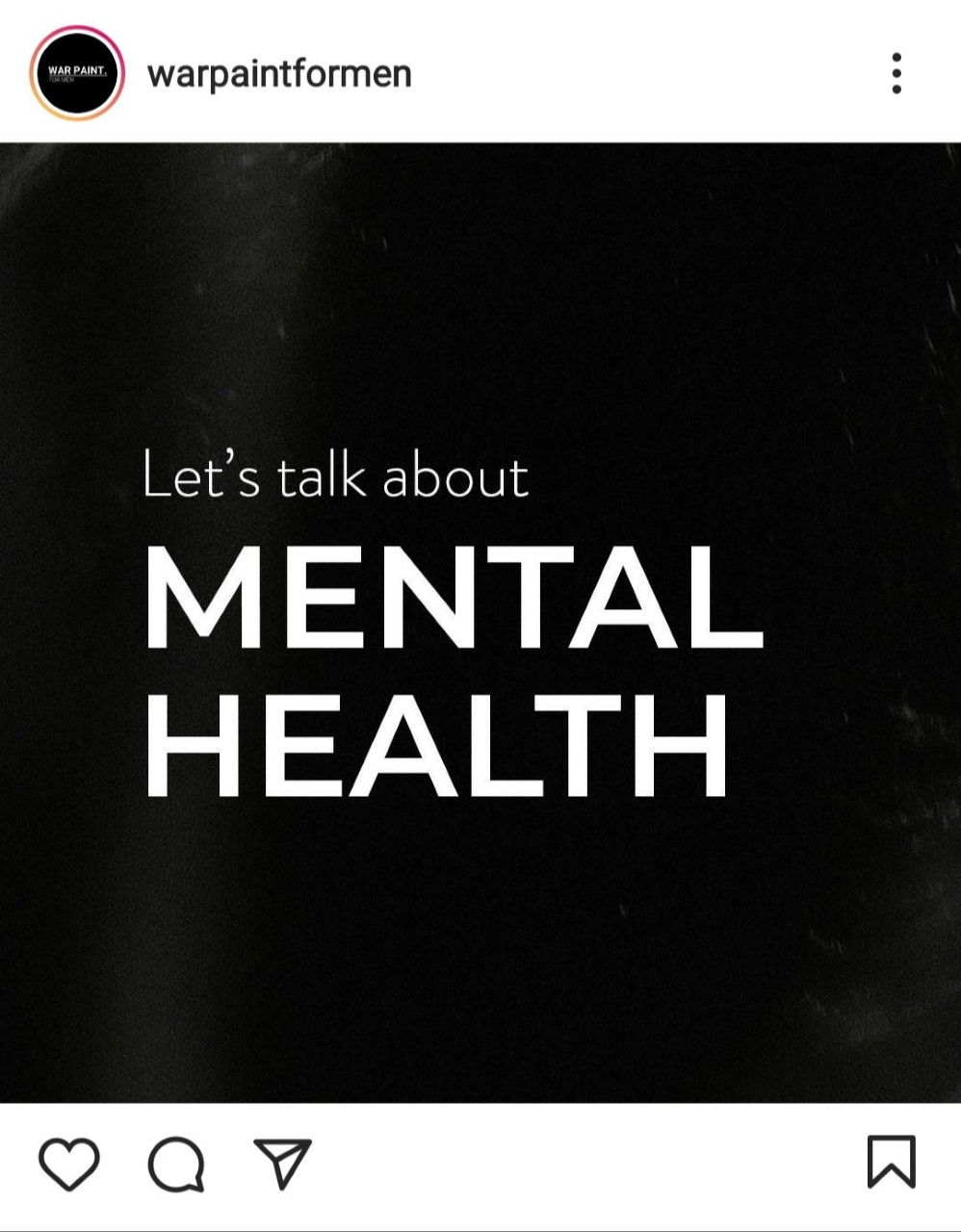
In the past, Danny suffered in silence; he seldom talked to others about his mental health problems. His fiancé’s mum admitted to thinking he was vain because of how much time he spent looking in the mirror.
He eventually opened up to his partner, who already had suspicions. Having suffered from a little body dysmorphia herself, she told him that he probably suffers from it, too, albeit having it much worse than she did. This was soon diagnosed by a doctor, which helped Danny “understand” his problems – and realise that what he was going through was not “normal”; he was suffering from a disorder.
Danny referenced well-meaning but ultimately ignorant people who cannot understand his body dysmorphia. They say things such as, “you look great” – “they think that’s help, but it’s actually the opposite”.
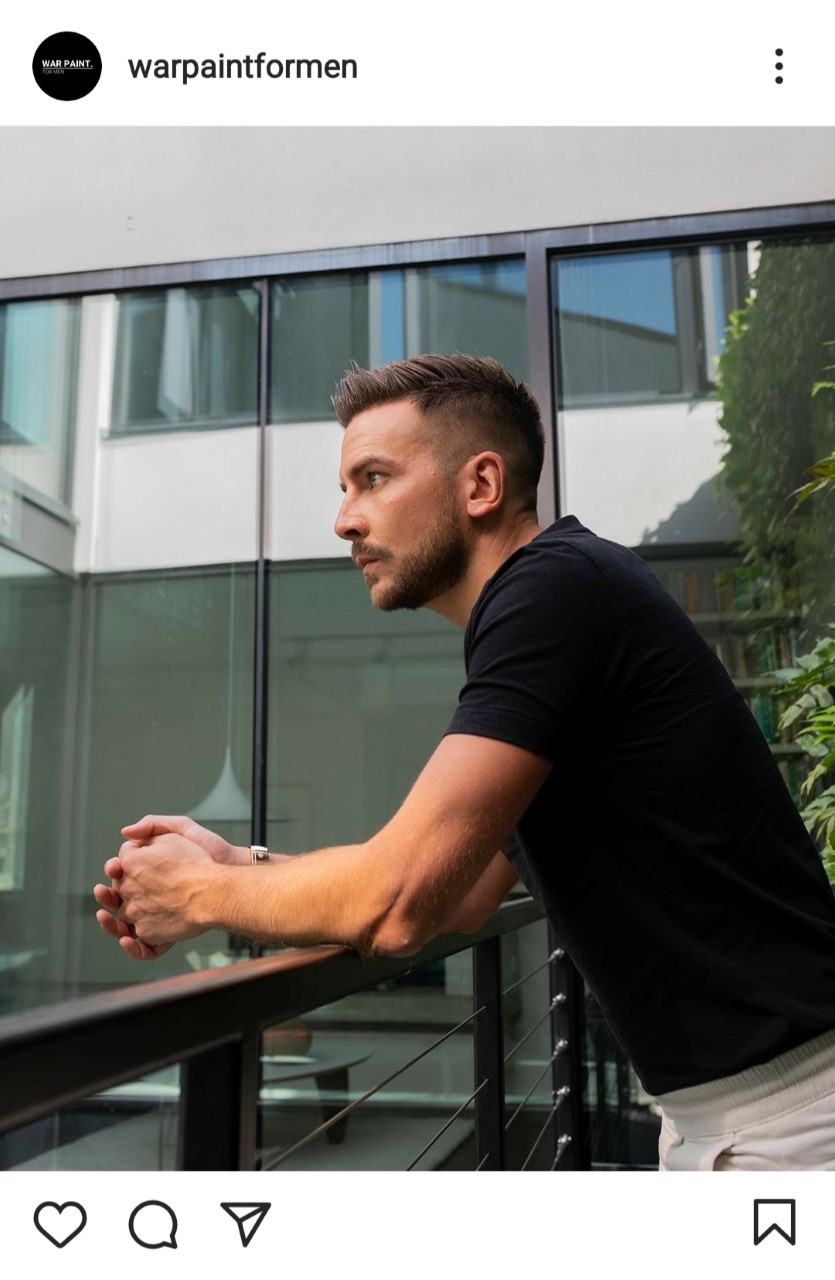
As someone who can be quite insecure, I completely understand this. I often receive compliments on my looks on social media, and whilst these compliments are usually lovely to hear, if I am having a bad day, they can have an adverse effect – because I am not seeing myself as attractive.
Not so long ago, I opened up to a social media friend about my insecurities, after they showered me in compliments. They could not understand this; they essentially told me that I am “perfect” so should not be feeling insecure about anything. They also opened up to me about their struggles – in particular, how gaining weight was affecting their relationship.
So, in a way, I understand how me complaining about my looks might be a little confusing, if not even annoying, for them to hear. But what people need to understand is that mental illnesses do not care how rich, successful or attractive you are; they spare absolutely nobody.
Danny did not immediately talk much about his story, but he soon realised that his story can be used as a way of helping other men with insecurities about their looks.
When War Paint went viral and received great backlash, the negative comments were not directed towards Danny personally – his backstory or what he was trying to do – but just about men wearing make-up.

When Danny went on Dragon’s Den, his story was front and centre, which was nerve-racking, but he received a really positive reaction – especially from men who do not feel comfortable talking about their mental health. “That’s what guys want to relate to,” he told me.
A lot of opportunities have come Danny’s way thanks to the success of his brand. For instance, War Paint has managed to fund the Body Dysmorphic Disorder Foundation’s e-helpline, in its entirety.

Danny, himself, is currently working on a new mental health project that he believes could be revolutionary – especially for men, who are less likely to open up about their mental health problems.
After telling him about my own mental health worries – which I will talk about some other time – he told me what this project entails. Sadly, this was strictly off-the-record, so you guys will have to wait a little longer to find out. I promise you, though, it will be worth the wait. I was amazed, inspired and excited.
Keep a look out for information on this upcoming project. In the meantime, you can buy Danny’s book, ‘Makeup for men: The manual from War Paint’, on War Paint’s website.
You can follow Danny on Instagram (@dannygraywarpaint) and Twitter (@dannygraywp).
You can follow War Paint on Instagram and Twitter (@warpaintformen).
